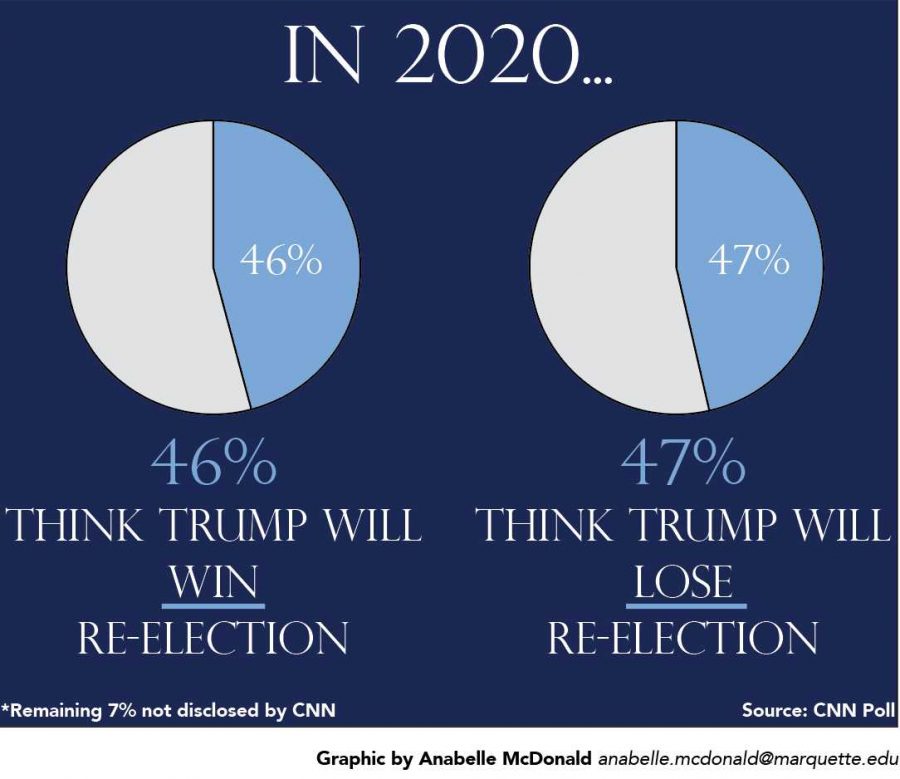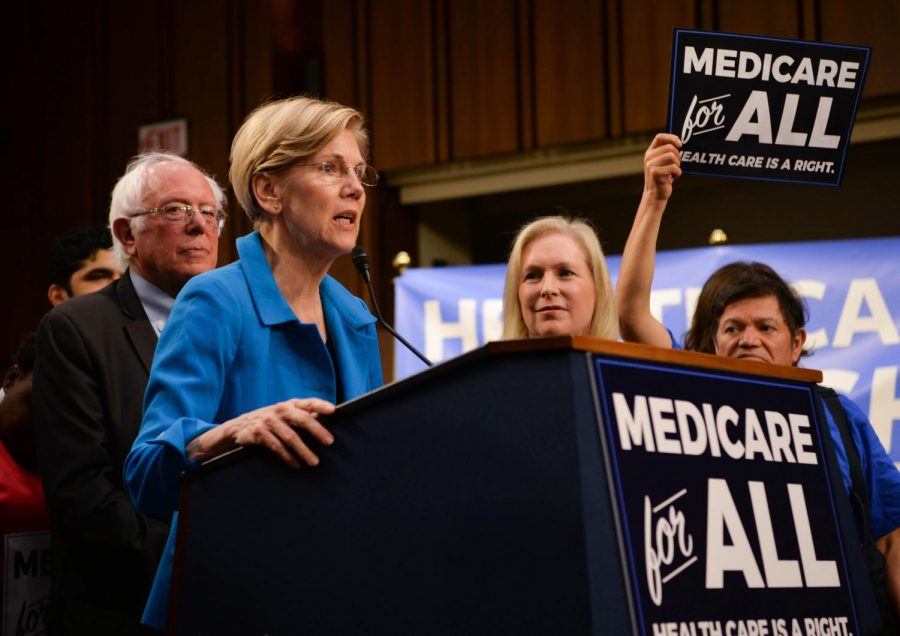With the 2018 midterms having just occurred this past November, both the Democratic and Republican parties are beginning to prepare for the upcoming 2020 presidential election. As the GOP will almost assuredly back incumbent president Trump for the upcoming race, it falls on Democratic party members to decide which candidate they want to earn the Democratic nomination during Milwaukee’s hosting of the Democratic National Convention next year in July.
With more than 18 candidates currently in contention for the opportunity to run against president Trump, there certainly exists no shortage of policies and personalities for Democratic voters to choose from. At this point in time, it is still extremely early in the selection process and as a result the full details of each candidate’s policies are relatively unknown. However, if Democrats aim to win the White House during 2020, it is of the utmost importance that candidates do not advocate for extremely liberal policies.
The election of president Trump and the policies he has implemented these past 2 years have sparked a backlash among a large portion of liberal voters, which in turn has solidified the Democratic party. This is a fact largely evidenced by the midterm elections where Democrats gained over 40 seats in the House of Representatives, ultimately giving them the majority in the lower chamber of Congress. By all accounts, this served as a noticeable victory for Democrats who now are able to oversee house committees in addition to commissioning inquiries about various aspects, and personnel, of the federal government.
This achievement was accomplished largely due to the fact that the entirety of the Democratic party was united in a common goal, which allowed liberal voters to have a noticeable impact on the election of public officials. Moving forward, if Democratic voters are to challenge a president who has largely delivered on his campaign promises, it is essential that they maintain their party cohesion.
This aspect of party unity has recently been an issue for the Democratic party during presidential elections as seen in the aftermath of the 2016 democratic primary, when Hillary Clinton defeated Bernie Sanders. Leading up to, and immediately following, the Clinton victory, there existed a noticeable ideological rift within the liberal voter base between Clinton and Sanders supporters.
While it’s not abnormal for some individuals to harbor a degree of resentment over one’s preferred party candidate not gaining the nomination, the radical promises of free college and universal healthcare made by Sanders’ campaign created an atmosphere where Bernie supporters saw voting for a more moderate Hillary Clinton as ridiculous, as her policies were not as extreme as those made by Sanders.
In the wake of this divide, Democratic enthusiasm for the presidential election greatly declined, with a noticeable portion of the party choosing to instead vote for a third party candidate, which in turn paved the way for a Republican White House.
Based off this past experience, it is essential that the 2020 Democratic presidential candidates do not present overly zealous policies that could potentially polarize the liberal voter base. Ideally Democratic candidates would run on relatively moderate policies that don’t promise unrealistic or ill-conceived changes to law. In doing this, candidates would be likely to present similar, although not identical, campaign promises thereby presenting a more united front as a whole party.
As a result, party members would be more likely to support whichever Democratic candidate gains the nomination in the general election and potentially win the White House. While some may argue that this strategy alienates progressive voters, it is important to remember that at this point in time they represent a minority of the Democratic party and are more likely to elect a moderate candidate so long as their ideology isn’t championed by one individual.
However, already early in the presidential race, the division of the Democratic party, which occurred in 2016, seems likely to reoccur. With Democratic socialist Bernie Sanders having already announced his candidacy, the division between hard line and moderate liberals is likely to be extenuated to a degree similar to what was seen during 2016, which will inevitably come to a head in the general election. In addition, another candidate, Andrew Yang, has also promised radical legislation in the form of universal basic income, a controversial concept which may serve to ideologically divide Democratic party members in the coming year. Moving forward, it would prove beneficial for Democrats to present a united front in the presidential 2020 primary and candidates who propose far leaning legislation have the potential to threaten the party’s cohesion.





